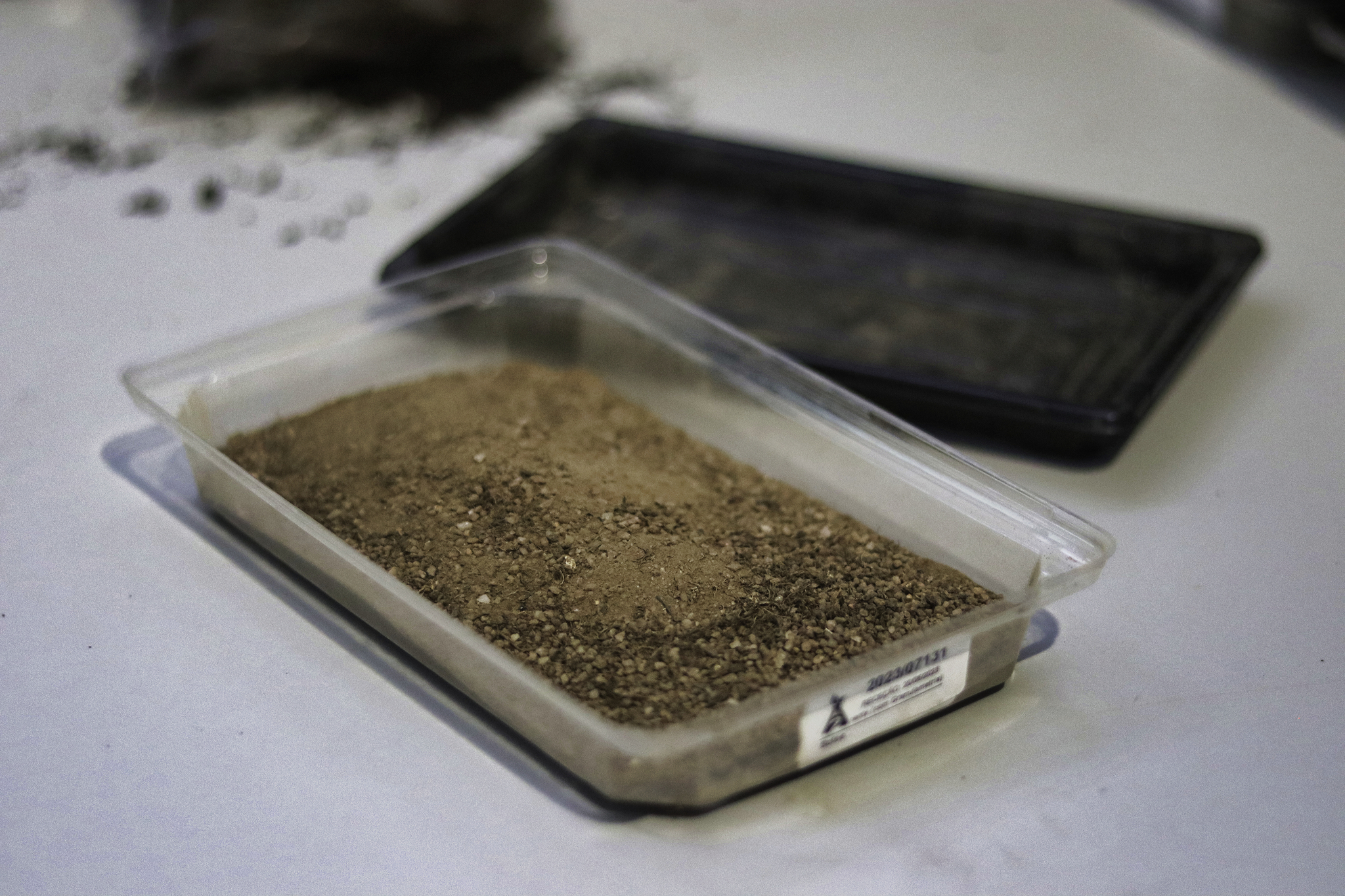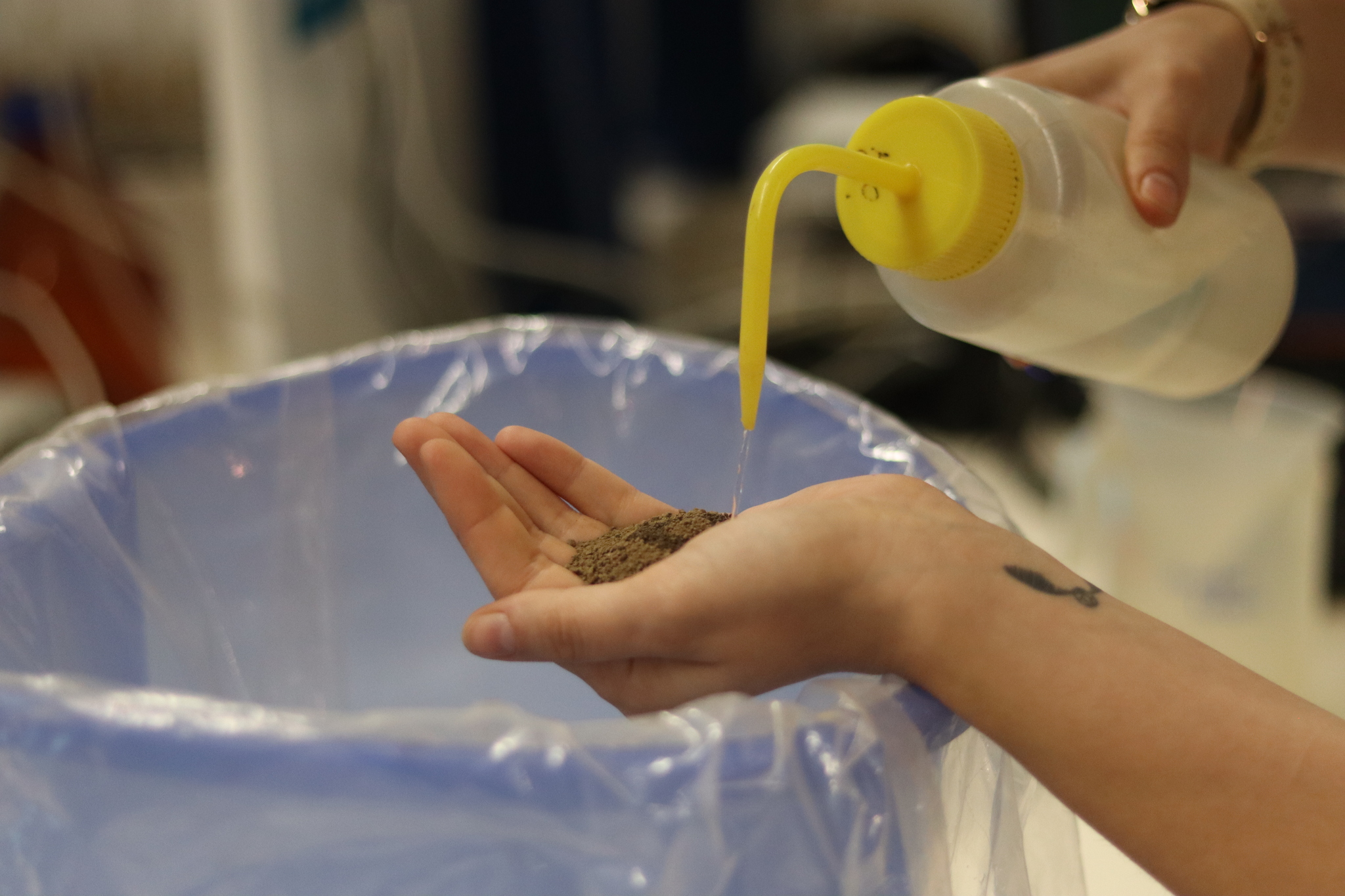Analysis
soil
Have you ever thought that an imbalance in your soil could compromise your yield?
Soil analysis is essential for studying the physical, chemical and biological conditions in which a particular crop will grow thus maximizing the soil’s nutritional capacity.
For this purpose, our laboratory has various analysis packages available so that farmers can use them to the different types of production methods that exist.


SOIL ANALYSIS
CLASSICAL ANALYSIS
The classic soil analyses have been developed specifically for farmers with conventional, organic, integrated or other farming systems.
Through different nutritional studies with varying degrees of information provided, the producer obtains a fundamental basis for correctly selecting the actions to be taken in the field, particularly when applying fertilizers and soil amendments.
| Bronze | Silver | Golden | Diamond | AGRI | |
|---|---|---|---|---|---|
| Sample preparation | ✓ | ✓ | ✓ | ✓ | ✓ |
| Fertilization recommendation | ✓ | ✓ | ✓ | ✓ | ✓ |
| pH(H2O) | ✓ | ✓ | ✓ | ✓ | ✓ |
| Electrical conductivity | ✓ | ✓ | ✓ | ✓ | |
| Lime requirement | ✓ | ✓ | ✓ | ✓ | ✓ |
| Organic matter | ✓ | ✓ | ✓ | ✓ | ✓ |
| Total Nitrogen | - | ✓ | ✓ | ✓ | - |
| Carbon/Nitrogen Ratio | - | ✓ | ✓ | ✓ | - |
| Calcium | - | ✓ | ✓ | ✓ | - |
| Sulphur | - | ✓ | ✓ | ✓ | - |
| Phosphorus, Potassium, Magnesium, Boron | - | ✓ | ✓ | ✓ | ✓ |
| Molybdenum | - | - | ✓ | ✓ | - |
| Iron, Manganese, Copper, Zinc | - | - | ✓ | ✓ | ✓ |
| Cobalt, Nickel and Sodium | - | - | ✓ | ✓ | - |
| Exchangeable bases (Calcium, Magnesium, Potassium, Sodium) | - | - | - | ✓ | - |
| Ca:Mg, Mg:K, Ca:K Ratio | - | - | - | ✓ | - |
| Test for carbonates | - | - | - | ✓ | - |
| Total lime and active lime | - | - | - | ✓ | - |
| Soil Cation Exchange Capacity | - | - | - | ✓ | - |
| Exchangeable acidity | - | - | - | ✓ | - |
| Base Saturation and Texture | - | - | - | ✓ | - |

SOIL ANALYSIS
ANALYSES FOR REGENERATIVE AGRICULTURE
Our laboratory has specific soil analysis packages for regenerative agriculture production, which allow us to identify the amount of nutrients available and to study the physical, chemical and biological properties relevant to plant nutrition.
A producer who chooses to introduce regenerative agriculture on the land will promote the conservation and restoration of soil health by rebuilding its ecosystems, thus increasing the productivity and profitability of his farm.
Regenerative agriculture is a cultivation system that will improve the vitality and resistance of the soil as there is:
– Control of the use of plant protection products and fertilizers, thus reducing the environmental impact;
– Lower soil mobilization;
– Increased water retention, leading to better management of water resources;
– Crop rotation and recycling of organic waste promoting biodiversity in ecosystems;
– Improving the soil capacity to nourish installed crops.
– pH
– Electrical conductivity
– Total Organic Carbon
– Total Nitrogen
– Total Carbonate
– Water Extractable Organic Carbon (WEOC)
– Water Extractable Total Nitrogen (WEN), Nitrate-Nitrogen, Ammonium-Nitrogen, Water Extractable Organic Nitrogen (WEON)
– H3A Extractable Phosphorus (total phosphorus, organic phosphorus, phosphate)
– H3A Extractable Elements: Potassium, Calcium, Magnesium, Sulphur, Iron, Manganese, Zinc, Copper, Sodium, Aluminium, Molybdenum, Cobalt, Nickel
– Soil respiration (Solvita 24 H soil burst)
– Organic Matter
– Carbon:Nitrogen Ratio
– %MAC (Microbially Active Carbon)
– Soil Health Score
– Phosphorus
– Potassium
– Calcium
– Magnesium
– Sulphur
– Sodium
– Boron
– Silicon
– Humidity
– Apparent Density
– Particle Density
– Porosity
– Granulometry (%Sand, %Clay e %Silt)
– Humidity at Saturation
– Field Capacity
– Permanent Wilting Point
– Available water
– β-Glucosidase (soil enzyme)
– Active/Labile Carbon (POXC)